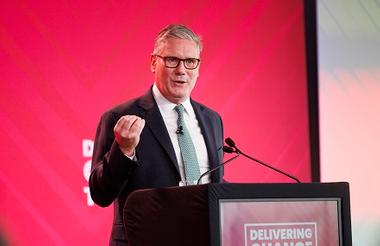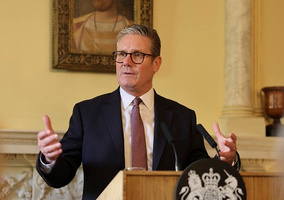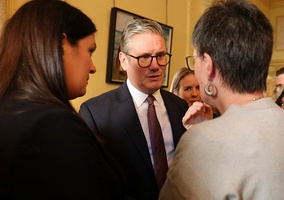The government has vowed to respect sector organisations’ right to campaign and engage in peaceful protest in the Civil Society Covenant.
Published today, the agreement sets out four principles for a “reset” relationship between the state and the sector – recognition and value, partnership and collaboration, participation and inclusion, transparency and data.
The first principle includes a vow from the government to respect the “independence and legitimacy” of charities to advocate and campaign, including their right to engage in peaceful protest, “and to hold the government to account to make better laws, regulation and decisions”.
It says that the government will not treat civil society organisations which have expressed disagreement with its policies “any less favourably by excluding them from policy discussions or funding opportunities”.
In turn, sector organisations must respect the “legitimacy of government to make decisions, the exercise by government of prerogative powers, and its accountability to parliament”.
New board to implement principles
The covenant principles apply to all central UK government departments, local authorities, arms-length agencies and other public bodies including NHS organisations.
A cross-sector board called the Joint Civil Society Covenant Council will be formed to set direction and provide strategic oversight for its implementation.
Two “task and finish groups” focusing on commissioning and local level partnerships will be set up, the document states, with plans for more in future.
The Department for Culture, Media and Sport has also announced it will steer a “local covenant partnerships” programme to build capacity and understanding, which will include encouraging more cross-sector secondments and delivering new locally-led covenant agreements.
HM Treasury will establish a new civil society forum to enable “structured dialogue and engagement” between its ministers and senior officials and civil society representatives.
Meanwhile, the Cabinet Office has reviewed its model grant and service contract templates to ensure they are consistent with the principles of the covenant and agreed to update any guidance as needed shortly.
The government has also published a list of progress and “warning” signs for implementing the Civil Society Covenant.
One warning sign listed is: “Civil society organisations report self-censorship because they fear negative consequences if they speak out or hold government to account, despite the terms of the covenant.”
Starmer: ‘A home at the heart of government’
Launching the covenant in London today, prime minister Keir Starmer said the agreement would give “civil society a home at the heart of government”.
“We’re not going to shut charities out and then expect you to pick up the bits,” he said. “That’s what the Tories did year after year after year.
“Nor am I interested in slogans that sound very good but end up being gimmicks for government to simply hide behind.”
Closing his speech, Starmer added: “We said we would work differently, and we are. We promised we would listen to you, and we have.
“Those initiatives we’re announcing today, they came from you, not us. We’ve put them into something which works in partnership.
“We said we’d deliver together, and we will to build a society of service bound together by our common values and finding new pride in our country and our communities.”
Nandy: Civil society must be heard
In the covenant’s foreword, culture secretary Lisa Nandy said: “It has been a difficult decade for many civil society organisations who have been asked to do more with less. Less funding, less recognition and less power.
“Funding has reduced as need has soared and the right to speak up on behalf of those most in need has routinely been challenged.
“It has cost us time and energy that could have been spent rebuilding our country and changing lives.
“If we are serious about renewal, civil society must be heard, not just at the margins but at the heart of decision-making.
“We believe civil society has a powerful voice that must be heard in the rooms where decisions are made and that it is only by working together that we will build a self-confident nation where everybody’s contribution is seen and valued, and all people have the chance to live the richer, larger and dignified lives that they deserve.”
Meanwhile, the Civil Society Advisory Group comprising the leaders of sector bodies including NCVO and ACEVO said in its foreword: “Tangible change is needed to implement the covenant, so civil society is valued as an expert strategic partner and independent advocate who can hold government to account and campaign for public benefit without fear of sanction.
“Whose expertise is sought to set the agenda and develop policy, not just bend to implement it. Whose independence is protected and valued.
“It will take honesty and humility to build trust, as well as willingness to work in new ways. We must seize this opportunity, because the social, economic and environmental challenges we face cannot be solved by government alone.”
Related articles












